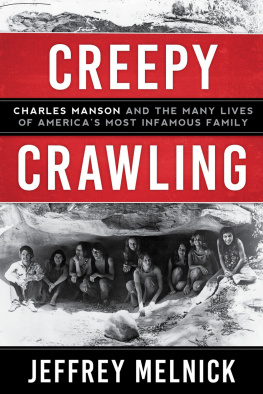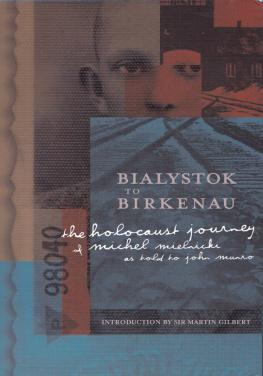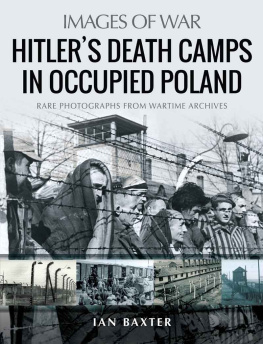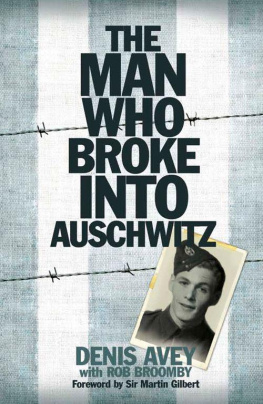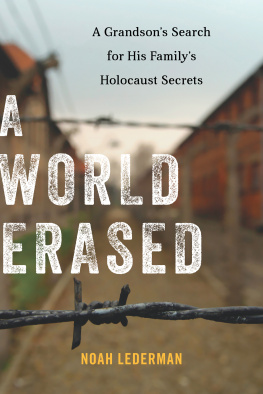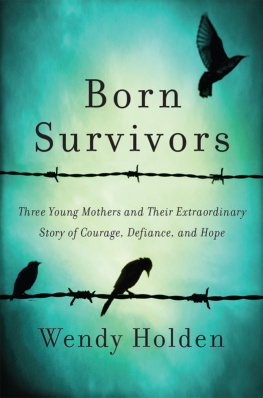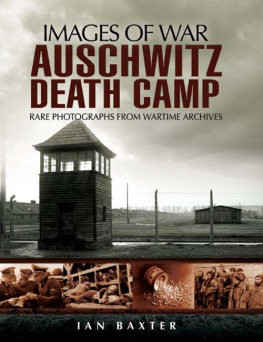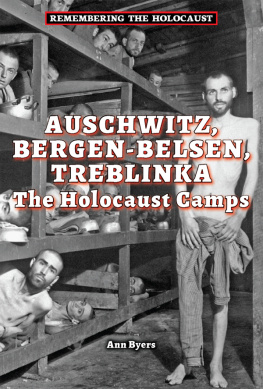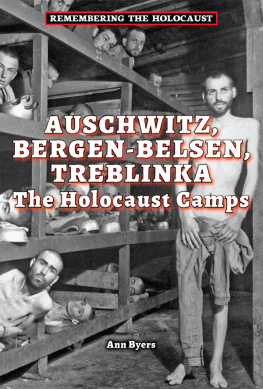By My Mothers Hand
As Told by Survivor Henry Melnick
2011 Henry Melnick. All rights reserved.
Story chronicled by Limore Zisckind
Afterword by Faith Dantowitz
Edited by Michael Melnick and Faith Dantowitz
Cover design by Hee Yol Lee
This book is available in print at www.bymymothershand.com
This book is dedicated to and in memory of my late wife Hela(Chaya) Melnick, and all of my relatives that did not survive the war. I amthe sole survivor of my entire family.
Table of Contents
I leave my story as a legacy to my children, grandchildrenand great-grandchildren to pass down for generations to come. Read, learn,grow and appreciate your lives. My story is but one of six million.
I was inspired to come forward with my testimony byremembering what my mother said to me: Somebody must survive to tell our story.
In writing this book, my intention is not to teach hate butto teach tolerance. Intolerance left unchecked leads to stories like mine. Thank you to my wife Elaine for encouraging me to share my story and forlending her love and support.
I would like to thank my grandson Michael for his effort anddedication in his roles as editor and designer.
Also thank you to Faith Dantowitz, Elaine Melnicksdaughter, for final editing.
Lastly, I want to thank my granddaughter Limore forencouraging me to write this book and spending so much time with me tochronicle and publish my words.
Being one of Henrys seven grandchildren, I was fortunate towork on this book to pass on to the next generation. I would like to sharesome of my thoughts while chronicling my grandfather Henry Melnicks personaltestimony.
Several years ago, while listening to my grandfather talk ata speaking engagement, a frightening thought entered my mind. What will happenwhen he is no longer here to share his experience? I ached to remember everydetail, every word and every nuance as he spoke. How could I remember hisentire history? That was when I decided to record his chronicles.
So began regularly scheduled visits to my grandfathershome. I often visited during the evenings, arriving hungry after work. BubbieElaine would make us dinner. Over 24 months and many bowls of soup, Ilistened.
While chronicling Henrys experiences, I tried to stay trueto his voice. I did not embellish nor add my own feelings. I asked manyquestions in order to try and evoke emotion, but sometimes I felt like I couldnot push any further. At times I could tell it was just too painful for him.
On numerous occasions I have heard Henry speak. Hisfact-based style of recounting his tragic story amplifies the depth, breadthand magnitude of his loss and his experience. Only once during my interviewprocess did I see the glimmer of tears in his eyes when I asked about hisfamily life before the war. Henry was used to openly talking about hisexperiences in the ghettos and death camps, but he rarely, if ever, spoke aboutfamily life. When asked about growing up before the war, I saw my grandfathershaking from sadness. I wished I could have asked him more about his mother,father and siblings.
He provided me with many materials to help me record hisstory; endless pictures, letters, books and hand-written notes. He did notwant to forget anything. Henry also gave me binders and envelopes full ofthank-you notes from students and educators that expressed gratitude to himafter hearing his words.
I am honoured to have had the privilege of recording hisstory. Every word has been etched into my soul. Only through spending thisprecious time with him have I come to fully understand the degree of hisstrength, courage, resilience and kindness. Instead of lashing out at theworld for the injustices he endured, my grandfather continuously preachestolerance. It is a lesson this world is far behind in learning.
Limore (Twena) Zisckind
By My Mothers Hand
As Told by Survivor Henry Melnick
I have no memory of my mothers face. We look like apicture-perfect family in my only remaining family photo my father, sister,brother and I taken one Saturday morning in a park in Lodz, Poland. My mother missed this one perfect moment, and because of that, I no longer remember whatshe looks like, not even her face. So many missed moments and missedopportunities enabled my survival and forced so many others to perish.
This is the only surviving photograph of my family frombefore the war. It was given to me shortly after I arrived in Israel following the war. Friends of my parents from Lodz, who moved from Poland before the war had this among their family photos.

Back row left to right: Yosef (my brother),Elijah (my father)
Front row left to right: Genia (my sister),Henry (me)
I was born on June 25th, 1922 in Lodz, Poland to Chaya and Elijah Chmielnicki. My sister Genia was two years younger than I. She diedwhen she was nine years old from a disease that no one talked about or reallyunderstood. I recall her falling ill one summer after returning from summercamp. A few weeks later she died. She may have had leukemia or kidneydisease.
My brother Yosef was two years older than I. He acted likemy boss and we loved each other very much. We would give our lives for eachother and could not imagine being apart. Ill never forget how after playingcheckers, the loser would always throw down all the pieces to the floor out offrustration.
My brother and sister were both quite studious. My sisterwould constantly write letters on pages. Back then, times and parents werestricter and children did not know everything that happened within the familylike financial problems or political matters. Interrupting parents was neverallowed and we were always careful to show respect when they spoke. I believewe were kept innocent through these rules. Today, it seems to me that childrentell their parents what to do.
My father Elijah was born in a shtetl near Lodz. I remember him as a thin, handsomeman. He was also always preoccupied and worried about providing for ourfamily. We grew up during the depression but somehow we never went hungry. Sometimes we even refused my mothers food.
Lodz was the largest textile manufacturing hub in Poland, second in Europe only behind Manchester, England. In Lodz, my father owned and operated asock factory. At that time his little factory employed three or four people. My mother used to also help my father with the business working in assembly.
My mother, Chaya, loved us very much. She used to make usclothes and repair those that were damaged or torn and needed patches. Backthen, our closets were pretty empty and getting a new sweater was a big deal.
My mother used to hug us all the time. My father did too,but not as much. My parents never hugged each other in front of us. Thisbehaviour was considered unacceptable. Though they did not dress in theorthodox fashion, they were still very traditional in their behaviour. All weknew about love and marriage was that a man must love his wife. My parents didnot overtly explain this to us; we understood through their actions towardseach other. Whatever I learned about sex, I learned in the courtyard of ourbuilding. A boy I knew told me that he used to share a bed with his father. One night he woke up and his father was in his mothers bedthat was our sexeducation.
I did not know either of my grandparents because they livedin the 1800s during the epidemics of cholera and tuberculosis. They died veryyoung, long before I was born. We never spoke of the dead so I do not evenknow their names nor do I have a picture. Growing up, I would always hearstories about different diseases such as cancer, which they described as a veryhard illness. Medicine was not very advanced back then.
Next page

